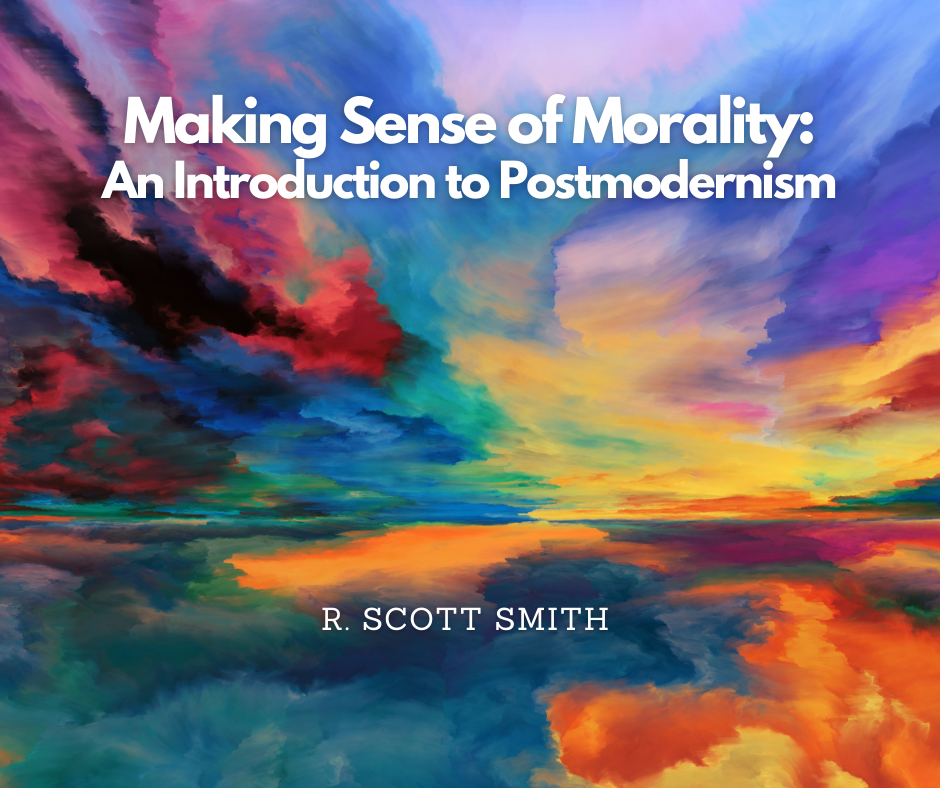Making Sense of Morality: Alasdair MacIntyre’s Ethics
/Editor’s note: R. Scott Smith has graciously allowed us to republish his series, “Making Sense of Morality.” You can find the original post here.
MacIntyre’s Diagnosis
MacIntyre (b. 1929) observes people seem to speak from different moral standpoints, or languages. Some talk as though they are emotivists, while others are Kantians, utilitarians, relativists, Aristotelians, etc. But, it seems we no longer have a way to dialogue morally and come to agreements. These different ways of morally talking seem to presuppose objective standards to evaluate them. However, he claims that fails because they presuppose different evaluative concepts and frameworks.
This situation leads to shouting matches. This happened, he thinks, because the Enlightenment “project” dropped the idea of a moral telos (goal, end) from Aristotle and Aquinas. Without it, we seem left with just human nature as it is, and ethics as the tools to become moral. But, what should we be like?
With the different moral theories so far, MacIntyre thinks we lack how rationally to decide between them. He claims this is because no independent, rational standards exist to decide between them.
Without a cogent answer, Nietzsche wins – ethics is just about power after all. Or, perhaps we discarded an earlier moral tradition too quickly. MacIntyre thinks we should recover the Aristotelian moral tradition (and later, Thomism) to solve this dilemma.
MacIntyre’s Proposal
To recover Aristotle’s ethics, MacIntyre recommends several changes. First, while Aristotle depended upon the soul to ground a person’s identity through change (including growth in virtue), MacIntyre says we must reject the soul. In its place, he argues for the narrative unity to a person. One’s narrative is drawn from the narrative context of that person’s form of life (community), with its formative story and language.
While Aristotle’s virtues were universal properties present in one’s soul, MacIntyre needs a new basis for them. He appeals to practices, such as medicine, which are socially established, systematic, cooperative activities with goods internal and external to them. For a doctor, the internal goods include helping sick people get well, while an external good could be material prosperity. Practices have standards of excellence (virtue, or arête), and practitioners’ abilities to achieve those goals, and their understanding thereof, grow.
Instead of Aristotle’s context (the Greek polis), MacIntyre appeals to traditions, which are extended historically. They are socially embodied by particular peoples in their communities. A tradition is an argument “about the goods which constitute that tradition” (MacIntyre, After Virtue, 229). For example, Christianity could be a tradition, formed by many particular Christian communities down through time.
The telos of one’s life come from the intersection of that life with the master story of the tradition. Moral virtues enable the pursuit of a telos for the good of that person, to sustain the tradition, and help achieve the goods internal to practices.
MacIntyre and Language
MacIntyre draws heavily upon the later Wittgenstein’s (d. 1951) views of language. Each language is nominal and tied to a given form of life. Language does not have universal meaning. Instead, meaning is a matter of language use (verbal and nonverbal behavior) in that context, according to its grammatical rules and formative story.
Rationality is not some universal phenomenon; it is tied to a tradition with its master story (e.g., for Christians, the gospel story) and language. Though we always access reality through the interpretive lens of our tradition, MacIntyre still maintains there is a real world apart from our interpretations.
Yet, MacIntyre argues that we can rationally adjudicate which tradition is rationally better than another. How? It cannot be done as an outsider to a tradition; it has to be done from the inside. One learns the language of one’s own tradition, and learns to interpret and reason from under that “aspect.” But, that person also can immerse him or herself in another tradition and learn its language as a second first language. That way, by being able to reason and interpret in both ways, that person can “see” if a tradition can solve its own problems and that of another. If so, that tradition is rationally superior and deserves one’s allegiance. So, we can avoid relativism, even though rational standards are internal to each tradition.
For Further Reading
Alasdair MacIntyre, After Virtue, 3rd ed., and Whose Justice? Which Rationality?
R. Scott Smith, In Search of Moral Knowledge, ch. 9



















